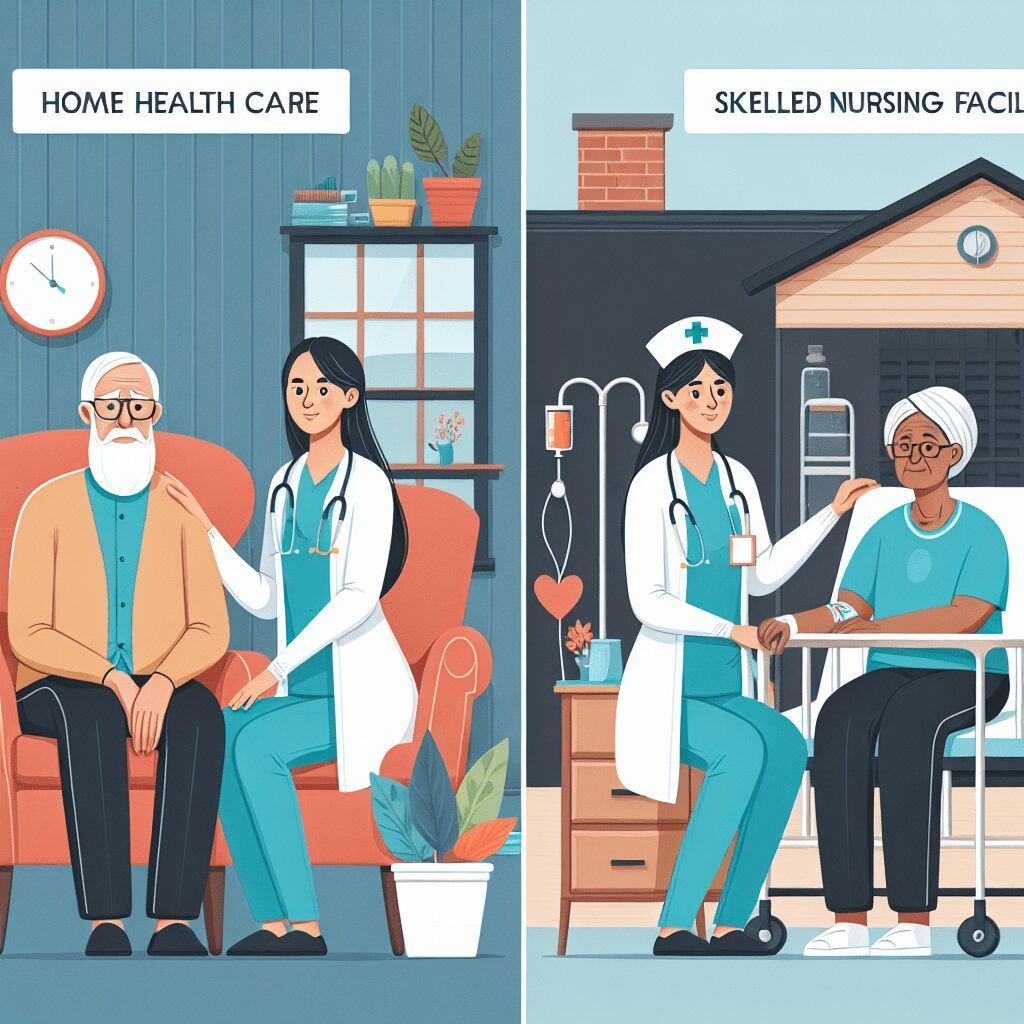How Pediatric Occupational Therapy Helps Children
Pediatric Occupational Therapy is a unique form of therapy focused on helping children engage in daily activities. From sensory processing to emotional regulation, occupational therapists work with kids struggling in various areas to improve their functionality. Therapists provide support not just to the child, but also to parents and teachers. Through workshops, small group sessions, and individualized consultations, pediatric occupational therapy offers a comprehensive solution to help children thrive at home, in school, and in the community.
Understanding Pediatric Occupational Therapy
Overview of Pediatric Occupational Therapy
Pediatric occupational therapy uses a personalized approach for each child. This approach helps with sensory processing, self-regulation, and fine motor skills.
The goal is to help children succeed in daily activities and reach their full potential. Strategies like educational workshops, reading programs, and sensory rooms are used.
Occupational therapists work closely with parents and teachers to provide individualized support. They focus on enhancing focus, function, and overall success.
By adapting continuously and offering necessary resources, children learn to navigate challenges and boost their confidence.
Occupational therapists empower children to overcome obstacles and thrive in all areas of life.
Role of Occupational Therapists for Children
A therapy approach in pediatric occupational therapy is flexible and adaptable. It addresses the unique needs of children that may not fit into specific diagnostic categories. This approach allows therapists to tailor interventions based on individual challenges and strengths rather than rigid diagnostic criteria.
Pediatric occupational therapy benefits children with undefined needs by providing customized services that improve various aspects of daily functioning. Through educational workshops on handwriting, sensory processing, and developmental milestones, children receive practical strategies to enhance their skills in areas like fine motor skills, self-regulation, and sensory processing.
Programs like a reading program with therapy animals or a movement circuit in schools support children’s learning and development. These activities engage children in ways that promote focus, attention, and motor skills. The consulting OT identifies children with developmental delays, facilitates small group sessions, and creates designated sensory rooms to meet the diverse needs of students.
By collaborating with teachers and parents, occupational therapists provide tools and strategies that empower children to achieve success in school and life.
Benefits of Pediatric Occupational Therapy
Improving Motor Skills
A consulting occupational therapist in pediatric occupational therapy helps children facing challenges in daily activities. They offer various services like workshops, reading programs, and sensory rooms.
Their goal is to improve fine motor skills, sensory processing, and self-regulation. By collaborating with teachers, they create a supportive learning environment for all students.
For example, they can implement a handwriting program that strengthens hand muscles for better writing. This boosts children’s confidence and equips teachers with tools to address individual needs effectively.
Enhancing Cognitive Abilities
In pediatric occupational therapy, an “undefined” condition in a child means there’s no specific diagnosis or impairment, yet the child struggles in daily activities. This classification acknowledges that children don’t always need a medical diagnosis for support services. Instead, the focus is on improving the child’s functional abilities and quality of life.
Occupational therapists tackle these undefined conditions by working with parents, teachers, and significant individuals in the child’s life. They develop tailored strategies focusing on the child’s specific needs. This involves brainstorming sessions and practical tools to enhance the child’s capabilities.
By collaborating with different disciplines and integrating occupational therapy strategies into existing plans, therapists help children with undefined conditions reach their maximum potential for success in all areas of life.
Working with children classified as pediatric conditions brings challenges and opportunities. The lack of a specific diagnosis may require more creative solutions, but it also enables a flexible and holistic approach to meeting the child’s unique needs.
Occupational therapists focus on function to empower parents, teachers, and caregivers with tools to help these children thrive and succeed in their development.
Developing Social Skills
When a child’s specific needs, challenges, or goals are not easily identified, it can complicate the diagnosis process. In such cases, a personalized treatment approach is essential.
Occupational therapists must adapt their services by relying on observation, assessment, and communication with parents and teachers to create effective strategies.
To help children with complex needs, OTs can use strategies like classroom observations, small group sessions, or sensory rooms. This tailored approach aims to support the child’s progress and success in daily activities.
By providing individualized support, children can receive the tools they need to overcome challenges and reach their full potential in school.
Promoting Independence
In pediatric occupational therapy, certain aspects of a child’s development or behavior may not be clearly defined or understood, often encompassing areas such as sensory processing, emotional regulation, and motor skills. These specific challenges may exist without a clear diagnosis, presenting unique hurdles in therapy.
Understanding these nuanced difficulties is crucial in occupational therapy. It allows therapists to tailor their services effectively, providing practical strategies to help children improve their function and succeed in daily activities. Recognizing and addressing these challenges can guide therapists in creating personalized treatment plans.
Occupational therapists use various methods to assist children in developing necessary skills. These include educational workshops, reading programs, movement circuits, and individualized support. By identifying and addressing the unique aspects of a child’s challenges, therapists can collaborate with parents, teachers, and caregivers to create a supportive environment that promotes the child’s overall well-being and developmental progress.
Pediatric Occupational Therapy Consultation
Initial Assessment Process
In pediatric occupational therapy, initial assessments are crucial in identifying challenges in areas such as sensory processing, emotional regulation, and organization. These assessments provide a foundation for developing practical strategies supporting fine motor skills, self-regulation, and focus improvements.
Consulting occupational therapists conduct thorough evaluations, which include observing the child in different settings and communicating with parents and teachers. This comprehensive approach ensures that the therapy plans are personalized and tailored to meet each child’s unique needs.
These assessments often lead to the creation of specialized programs such as reading initiatives with therapy animals or movement circuits in schools. By implementing these strategies, therapists help children enhance their daily activities both at home and at school.
Customized Therapy Plans
Children with undefined skills in pediatric occupational therapy may struggle in various areas, including sensory processing, emotional regulation, organization, and fine motor skills. These challenges can affect their daily activities, hindering their development and school success. Tasks like writing, focusing, and transitioning may be hard without proper support.
An occupational therapist can offer services like educational workshops, reading programs, movement circuits, group sessions, and sensory rooms to identify and address these challenges. With personalized support and teamwork with parents and teachers, children can improve their skills and confidence, leading to success in their education.
Parenting Support and Guidance
If children have undefined motor skills, they may struggle with tasks like writing, drawing, and fine motor activities.
Pediatric occupational therapy services can help by improving the hand muscles and coordination required for successful writing.
Educational workshops on developmental milestones can enhance fine motor skills, making it easier for children to perform precise movements.
School-wide programs, such as handwriting initiatives and sensory rooms, create an optimal learning environment for children.
Occupational therapists collaborate with teachers to provide individualized support through small group sessions and classroom observations to identify specific needs.
Consulting occupational therapists aim to enhance children’s function and confidence by providing tools and resources to support their educational journey.
Pediatric Occupational Therapy Approaches
Play-Based Therapy
Pediatric occupational therapy aims to support children’s development. It addresses sensory processing issues, fine motor skills, and self-regulation through practical strategies and tools.
This can be achieved through:
-
Educational workshops
-
Reading programs
-
Movement circuits
-
Small group sessions
-
Sensory rooms
-
Individualized support
By focusing on the child’s individual needs and utilizing:
-
Comprehensive handwriting programs
-
Therapy animals
-
Classroom observations
The consulting OT plays a role in enhancing the learning environment for successful outcomes. Additionally, the OT can provide professional development for teachers to implement effective strategies, ensuring that every student benefits.
Virtual consultations offer benefits in Ontario, Canada. It provides tailored recommendations, support for parents, and collaboration with other disciplines. This maximizes function and success in the child’s life.
Empowering parents with confidence, tools, and strategies can significantly impact the child’s overall function and well-being.
Sensory Integration Therapy
In pediatric occupational therapy, some aspects of a child’s needs, challenges, or goals may not be immediately clear. This requires therapists to be flexible, adaptable, and creative in their approach to treatment.
For instance, if a child’s fine motor skills are not clearly identified, the therapist may need to experiment with various tools and strategies to help the child improve these skills. This can involve using different types of sensory input or fine motor activities to find what works best for the child.
Occupational therapists handle situations where needs are not immediately clear by conducting thorough assessments to identify areas of concern. They use tools like developmental milestones and sensory processing guidelines to create tailored interventions.
Strategies might include setting up a sensory room to provide various sensory experiences or organizing small group sessions to focus on specific skills. These approaches help children engage in and improve their sensory processing, emotional regulation, and motor skills, ultimately supporting their daily activities and overall development.
Working with Occupational Therapists
The consulting occupational therapist helps children with sensory processing, fine motor skills, and self-regulation.
They offer workshops for teachers to improve the learning experience for kids. The therapist can also set up programs like reading with therapy animals or a movement circuit for better focus.
When working with students, they may screen for delays, hold support sessions, or observe classrooms for specialized help.
Collaborating closely with teachers, the OT ensures all kids get the tools they need for success in function and development.
Their expertise and personalized methods play a big part in the progress of children in pediatric occupational therapy.
Availability of In-Home Pediatric Occupational Therapy
In-home pediatric occupational therapy is increasingly available to meet the needs of children who benefit from receiving therapy in the comfort of their own homes. This personalized approach allows therapists to create a familiar and supportive environment, enhancing the child’s comfort and engagement in therapy. By conducting sessions at home, therapists can better understand the child’s everyday challenges and integrate therapeutic activities into their daily routines. This approach also allows for greater involvement of family members, who can learn and apply therapeutic techniques to support the child’s progress between sessions.
In-home pediatric occupational therapy availability varies by location, but many regions offer this service through private practices, early intervention programs, and specialized pediatric therapy providers. Telehealth has also expanded access to in-home therapy, allowing therapists to guide parents and caregivers in implementing strategies and activities remotely. This flexibility ensures that even families in remote or underserved areas can receive high-quality occupational therapy services for their children. In-home therapy addresses specific developmental and sensory needs and fosters a holistic approach to the child’s well-being by involving the entire family in the therapeutic process.
FAQ
How does pediatric occupational therapy help children develop fine motor skills?
Pediatric occupational therapy helps children develop fine motor skills through activities like using scissors, writing, and doing puzzles. Therapists provide specific exercises and techniques to improve coordination, dexterity, and hand-eye coordination.
Can pediatric occupational therapy help children with sensory processing disorders?
Yes, pediatric occupational therapy can help children with sensory processing disorders by providing sensory integration techniques, sensory diets, and environmental modifications. Therapists use specialized activities to help children regulate their sensory input and improve their daily functioning.
What role does pediatric occupational therapy play in helping children improve their handwriting?
Pediatric occupational therapy can help children improve their handwriting by addressing underlying issues such as fine motor skills, visual motor integration, and sensory processing. Therapists may use activities like drawing shapes, practicing grasp, and sensory play to enhance handwriting skills.
How does pediatric occupational therapy assist children with developmental delays?
Pediatric occupational therapy helps children with developmental delays by providing interventions to improve fine motor skills, sensory processing, and daily living skills. Therapists use activities like handwriting practice, sensory play, and self-care tasks to promote independence and overall development.
Can pediatric occupational therapy help children improve their social skills?
Yes, pediatric occupational therapy can help children improve their social skills by teaching them how to engage in play, develop communication skills, and interact with peers effectively through activities such as group therapy sessions, sensory integration techniques, and social skills training exercises.
Discover the transformative benefits of pediatric occupational therapy with ABET Life Home Health & Caregiving. Our in-home services are designed to support children in developing essential motor skills, improving sensory processing, and enhancing their ability to perform daily activities independently. Contact us today to learn how our personalized and compassionate approach can help your child reach their full potential.
The post How Pediatric Occupational Therapy Helps Children first appeared on Home Health & Care Giving Service in Houston, TX.












